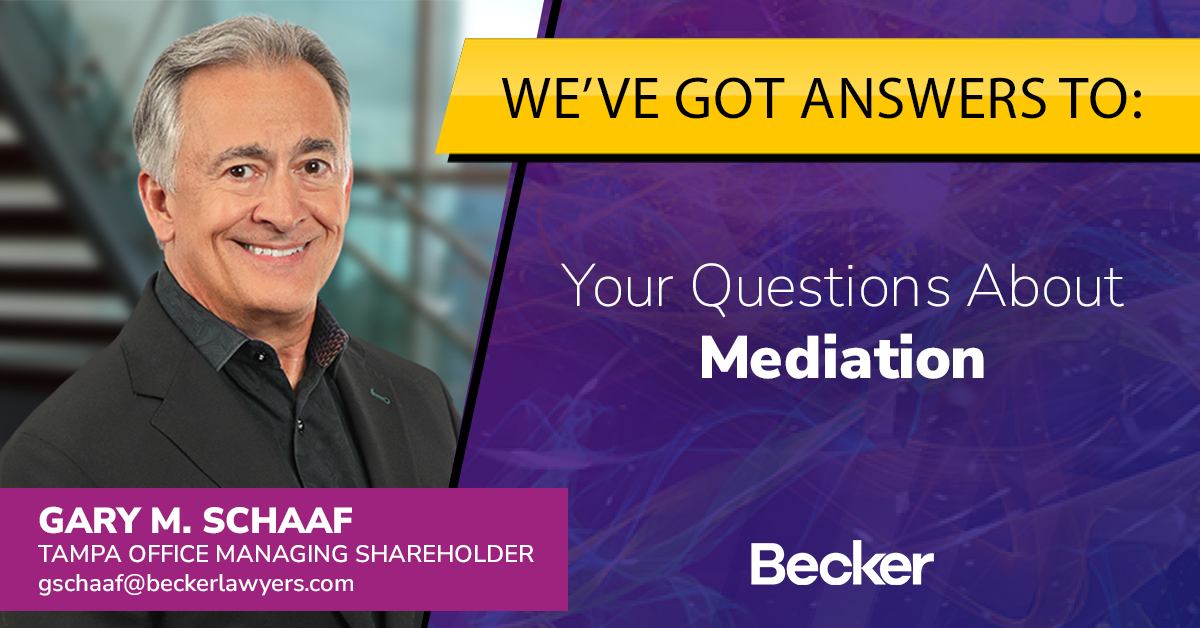We’ve Got Answers: Your Questions About Mediation Part Eight

Q: How is a lawsuit formally settled in mediation, and how is that settlement enforced?
A: Any settlement agreement reached between the parties at mediation must be properly documented in order to be enforceable. This means that all of the terms of the settlement need to be reduced to writing and that written document must be signed by the parties and their counsel, if any.
While the parties are free to provide for all sorts of terms in their settlement agreement, including reserving certain claims for determination by the court, typically, once the agreement has been written and signed, all of the claims and defenses at issue in the lawsuit are “merged” into the settlement, which becomes a written contract between the parties.
The settlement agreement will typically provide for the dismissal of the lawsuit, either within a certain time following the execution of the agreement or upon the performance of some obligation under the agreement, such as the payment of an agreed settlement amount.
If one of the parties then fails to comply with the terms of the settlement agreement, that is considered a breach of contract, which can be the subject of a motion asking the court to enforce the agreement, or a separate lawsuit for breach of contract.
In light of those possibilities, settlement agreements often provide that, if one of the parties needs to take legal action to enforce the settlement terms, that party will be entitled to an award of any reasonable attorneys’ fees and costs incurred in doing so. Providing, in the settlement agreement, for the possibility of such an attorneys’ fees award is intended to make it less likely that either party will decide to violate the agreement.
Another tool often implemented to render the settlement agreement more enforceable is to provide that the agreement will be approved by the court in the lawsuit and entered as an order of the court. In this way, if the agreement is breached, the non-breaching party will also have the remedy of seeking enforcement and the possible entry of a contempt order by the court.
Gary Schaaf has been a Florida Supreme Court Certified Circuit Court Mediator since 1995. He can be reached for scheduling at gschaaf@beckerlawyers.com or by phone at (813) 527-3912, and you can read more about his background here.





